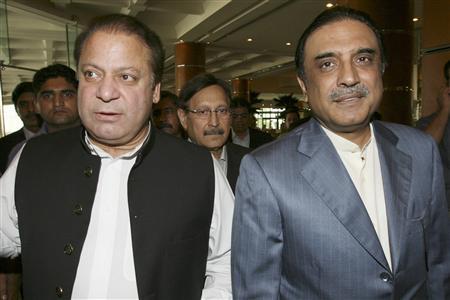
Like the past 10 budgets, the new one too is based on the philosophy propounded by the Washington Consensus and on the much-maligned trickle-down theory. Both draw their inspiration from capitalism which is fast losing its validity.
The end of capitalism is being increasingly linked to the recent figures showing that the wealthiest eight billionaires in the world have as much wealth as the bottom half of the global population, or some 3. 5 billion people. The equivalent figure was the 62 wealthiest billionaires in 2016. Back in 2010 it was more than 300.
“This is how rapidly wealth is being sucked up to the top — this may be termed the vacuum-up effect as opposed to the myth of trickle-down economics, “ says Youssef El-Gingery in an article titled, “Karl Marx 200th anniversary: The world is finally ready for Marxism as capitalism reaches the tipping point” published in UK’s Independent newspaper on May 4, 2018.
A slew of books heralds the end of capitalism and announces that we are entering the epoch of post- capitalism, according to the gospel of journalist and author Paul Mason. The most dangerous philosopher in the West, Slavoj Zizek, according to The New Republic magazine, is communist; one of his recent tomes, Living in the End Times, conjures up the apocalyptic sense of the death throes of capitalism.
In 2011, back when it was still unfashionable to confess to being Marxist, Oxford University literary theorist Professor Terry Eagleton boldly decreed that Marx had been right after all. Eagleton is no longer alone.
The Marxist critique of capitalism hinges on its innate tendency towards concentration and centralisation of wealth. French economist Thomas Piketty’s work, updating the original title to Capital in the Twenty-First Century, using a large amount of historical data, has further corroborated Marx’s theories on the concentration of wealth.
Whilst Victorian capitalism was dominated by small-to-medium-sized companies, the middle decades of the 20th century witnessed a shift to statist capitalism. Since then the age of globalisation has been ushered in with multinational corporations straddling the globe — many of them larger than the states they operate in. The movement of vast pools of capital on a global scale is historically unmatched. In other words, the centralisation Marx predicted 150 years ago is panning out.
Neoliberal doctrine emphasises the virtues of competition. Yet the reality of deregulated free markets, most evidently in financial services, has been monopoly, cartels, collusion and rigging. This is evidenced by the big four dominances in every sector from banking, accountancy, magic circle law firms, to high street supermarkets, energy companies and privatised utilities. The contradictions of the system have now attained a new level of absurdity.
So of late, capitalism is being funded to be economically, socially and ecologically unsustainable, not to mention bankrupt, then whither to from here?
Undoubtedly, a set of progressive ideas is coalescing amongst the new left – a green economy, public and democratic control of the economy, full automation. This 21st century manifesto is embodied in such books as Inventing the Future. The critical question remains of the vehicle necessary to bring about this transition. The transition of capitalism to an alternative political and economic system will likely play out, according to Youssef, over a protracted period.
One had hoped that the PTI which claims to be the agent of change would roll with the transformations taking place globally on the economic front and usher in the needed Tabdeeli in the country with its first budget, but the Kaptaan has turned out to be a true agent of status quo.
Published in The Express Tribune, June 22nd, 2019.
Like Opinion & Editorial on Facebook, follow @ETOpEd on Twitter to receive all updates on all our daily pieces.













COMMENTS
Comments are moderated and generally will be posted if they are on-topic and not abusive.
For more information, please see our Comments FAQ